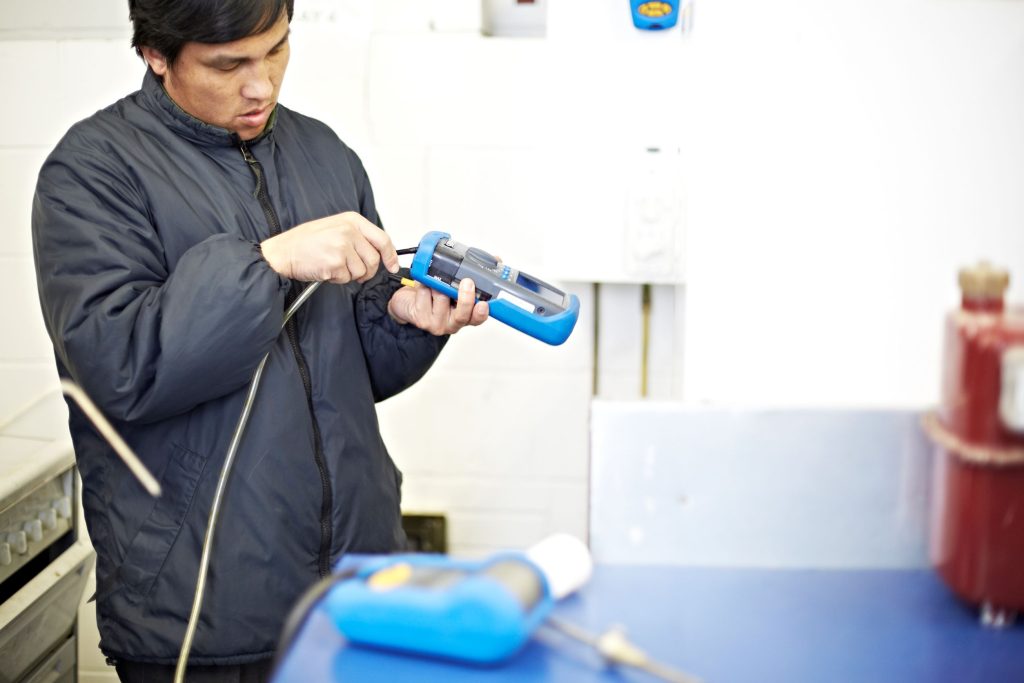
Gas engineers are highly-skilled tradespeople. They must complete rigorous training and assessments before being able to carry out work.
There are a number of entry routes to becoming a qualified gas engineer, these could range from an introductory course with an accredited training provider, enrolling in an apprenticeship scheme or transitioning from another construction trade.
Before legally carrying out work, engineers must join the Gas Safe Register. To do this, a person must hold the relevant qualifications and evidence of competence in working with gas. This proof of competence is awarded through the process of proving to a recognised awarding body that you have the appropriate level of knowledge, understanding and practical skills. A list of Gas Safe recognised bodies can be found here.
Below, we’ve run through a few of the most common pathways to becoming a gas engineer, along with the necessary qualifications you’ll need to hold before carrying out work.
Apprenticeship
Apprenticeships are the traditional route to a career in gas, though do take much longer to complete (around two years) than dedicated training programmes.
Entry requirements can vary, though typically ask for four GCSEs (A-C), including maths and English. One major benefit of training through an apprenticeship is that you earn while you learn.
Private training provider
Private construction training has grown in popularity due to the speed at which you can become qualified in comparison to an apprenticeship.
Typically, no prior qualifications are needed to enrol in an introductory gas course, making this a more accessible choice for many.
Existing tradespeople
There are instances when a person already possesses some of the knowledge and skills required of gas engineers due to time served in the construction industry, for example, if they’re a working plumber already.
Given the regular crossovers between the plumbing and gas industries, experienced plumbers can complete a managed learning programme (MLP). This streamlined option may have reduced guided learning hours where you will build on the skills you already hold, adding the necessary training and theory to become qualified in gas.
How do I become a certified gas engineer?
To become a fully qualified gas engineer you’ll need to complete your initial training either via an accredited training provider, like Able Skills, or through an apprenticeship, where you’ll learn under the supervision of a qualified engineer.
Once your initial training is completed, you’ll need to build a portfolio of gas work. This period is vital for gaining on-the-job experience under the supervision of an experienced engineer and is a must before completing your ACS assessment.
All engineers must complete an accredited certification scheme (ACS) to become a member of the Gas Safe Register. This examination tests both your practical ability and theory knowledge, and once passed, you’ll receive your CCN1 (core gas safety), CENWAT 1 (Central Heating Boilers), CPA 1 (Combustion Performance Analysis), CKR 1 (Domestic Cookers), HTR 1 (Gas Fires and Wall Heaters), MET 1 (Meters) and DAH 1 (Warm Air Heating Appliances) qualifications.
Once you’ve completed your ACS, you can begin carrying out gas work in a domestic setting (provided you’ve joined the Gas Safe Register). A separate commercial ACS must be completed for those wanting to work in a commercial setting.
Can I become a gas engineer without being a plumber?
Yes, you can begin your gas training without holding any plumbing qualifications, as the necessary plumbing skills (pipework, soldering, etc) are covered in the initial stages of your gas training.
If you want to learn more about gas training or find the course that’s right for you, our team would be happy to help. Drop by the training centre anytime we’re open for a chat, or if you can’t make it in give us a call on 01322 280 202.